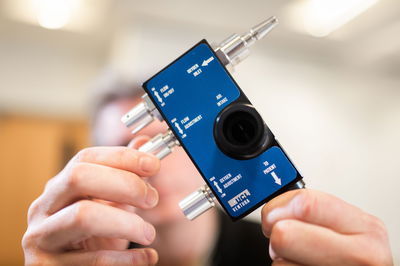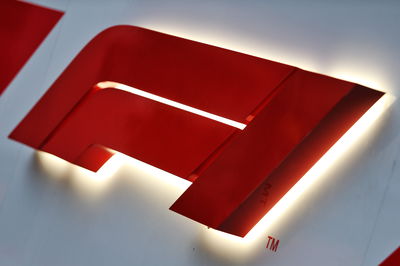Mercedes, UCL make CPAP designs free in coronavirus response
Mercedes has transformed its High Performance Powertrain factory into a Continuous Positive Airway Pressure (CPAP) production facility manufacturing 1,000 devices per day to meet the 10,000 ordered by the UK government, while the design has been made freely available for other firms to make across the world.
Following the successful reverse engineering of a CPAP device working in partnership with University College London, Mercedes has began producing the breathing aid from its Brixworth facility using 40 machines which normally make F1 pistons and turbochargers.

Mercedes has transformed its High Performance Powertrain factory into a Continuous Positive Airway Pressure (CPAP) production facility manufacturing 1,000 devices per day to meet the 10,000 ordered by the UK government, while the design has been made freely available for other firms to make across the world.
Following the successful reverse engineering of a CPAP device working in partnership with University College London, Mercedes has began producing the breathing aid from its Brixworth facility using 40 machines which normally make F1 pistons and turbochargers.
With CPAP devices in short supply in hospitals, Mercedes and UCL engineers took just under 100 hours to manufacturer its first device, while the Mark II has reduced oxygen consumption by up to 70% compared to the original version.
Mercedes and UCL have made all details and designs needed to make the device free to access through a research licensing website from UCL. The license includes designs, specific materials required, tools used and the fabrication time for each part.
“These life-saving devices are relatively simple to manufacture and can be produced quickly,” Professor Rebecca Shipley, Director of UCL Institute of Healthcare Engineering, said. “We hope that, by making the blueprints publicly available, they can be used to improve the resilience of healthcare systems preparing for the Covid-19 pandemic globally.”
“These devices can help to save lives by ensuring that ventilators, a precious resource, are used only for the most severely ill,” Professor Meryn Singer, UCLH critical care consultant, added. “We and others are finding that a significant proportion of patients treated with CPAP can avoid mechanical ventilation.”
CPAP devices will be used on patients with coronavirus who do not required a ventilator, freeing up the life-saving machines which are in short supply during the ongoing crisis.
Mercedes have been working as part of F1’s Project Pitlane which has seen the sport play its part in fighting the coronavirus pandemic by manufacturing medical equipment during its postponement to the 2020 season.











